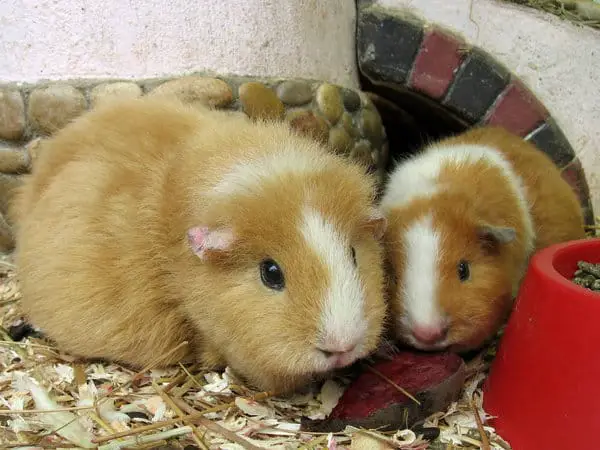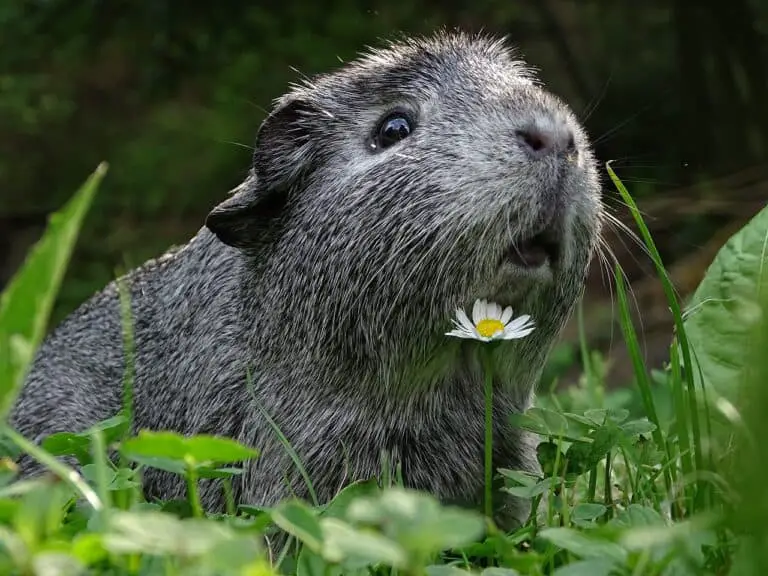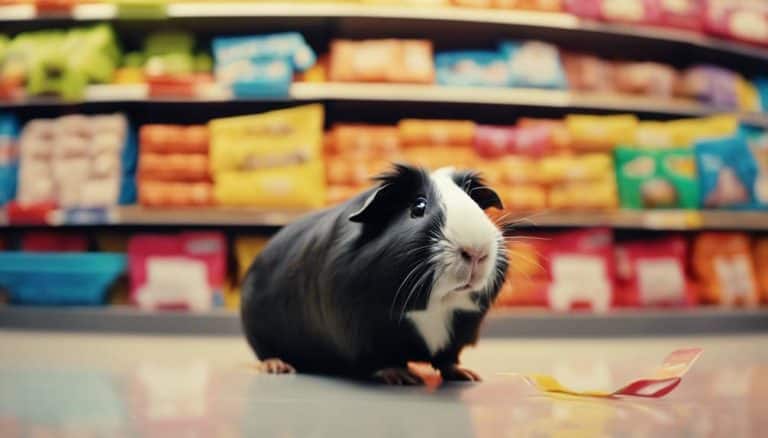How Many Guinea Pigs Are in a Litter
Ranging from two to eight pups, the answer to the question of ‘How many guinea pigs are in a litter?’ can be complex. To better understand, let’s dive into the factors that influence the size of a litter, the common breeds and their expected litter sizes, what to expect when preparing for a guinea pig litter, and the average number of pups in a litter.
Key Takeaways
- The average litter size of guinea pigs is between two and four pups.
- The factors affecting litter size include the age and health of the mother guinea pig, genetic makeup of the parents, environmental conditions, size and age of the mother, and the mother’s health and diet.
- Different guinea pig breeds have typical litter sizes, such as Abyssinian (2-4 pups), American (2-3 pups), Peruvian (2-4 pups), and Silkie (2-3 pups).
- Preparing for a guinea pig litter involves ensuring the mother’s health with a veterinarian checkup, providing a suitable enclosure and clean environment, offering extra bedding for a safe birthing place, and monitoring the mother’s diet for proper nutrition.

Factors Affecting Litter Size
Factors such as the age and health of the mother guinea pig can significantly influence the size of a litter. Generally, the genetic makeup of the parents and environmental conditions can also have an effect on the size of the litter.
A female guinea pig’s first litter will usually consist of two to four guinea pigs, while subsequent litters can have up to six. However, some litters may contain as few as one or as many as eight.
The size of the litter can also vary depending on the size and age of the mother guinea pig. Larger, older females tend to have larger litters than smaller, younger females. Additionally, a female guinea pig’s health and diet can also affect the size of the litter. A guinea pig in poor health or one that is malnourished may have a smaller litter than a healthy guinea pig that is well-fed.
Common Breeds and Their Typical Litter Sizes
Common breeds of guinea pigs typically have specific litter sizes. Breeding habits, cage space, and other factors all play a role in the size of a guinea pig litter. The most popular breeds and their typical litter sizes include:
- Abyssinian – 2-4 pups
- American – 2-3 pups
- Peruvian – 2-4 pups
- Silkie – 2-3 pups
The size of a litter can also be affected by the age of the mother guinea pig. Generally, younger mothers produce smaller litters, while older mothers tend to produce larger litters. Additionally, the amount of space the mother guinea pig has in its cage will also impact the size of the litter. Guinea pigs that have plenty of space to move around and explore tend to have larger litters than those kept in smaller cages.

Preparing for a Guinea Pig Litter
When expecting a litter of guinea pigs, there are several preparations to consider. It is important to make sure that the mother’s health is well taken care of, as well as ensuring that the enclosure is suitable for the growing family.
One way to ensure that the mother is healthy is to take her to the veterinarian for a checkup prior to the birth. The enclosure should be large enough to accommodate the expected litter size.
Additionally, the environment should be kept clean and the temperature regulated to keep the baby guinea pigs healthy. Providing the mother with extra bedding material, such as hay or straw, will create a safe and comfortable place for the babies to be born.
It is also important to keep an eye on the mother’s diet to make sure she is getting the proper nutrition for her and her litter. Lastly, it is crucial to provide the mother with a private, quiet space where she can give birth without any disturbances. With these preparations, a guinea pig litter can be safely and successfully welcomed into the world.
Conclusion
The average number of guinea pig pups in a litter is between three and four, but this can vary greatly depending on the breed. Generally, smaller breeds will have smaller litters while larger breeds will have larger litters.
Surprisingly, the record for the largest litter is twelve pups, which was born to a small Abyssinian guinea pig. With proper preparation, owners can ensure that their guinea pig is well-equipped to handle the birthing process and provide a safe and comfortable environment for the newborns.






